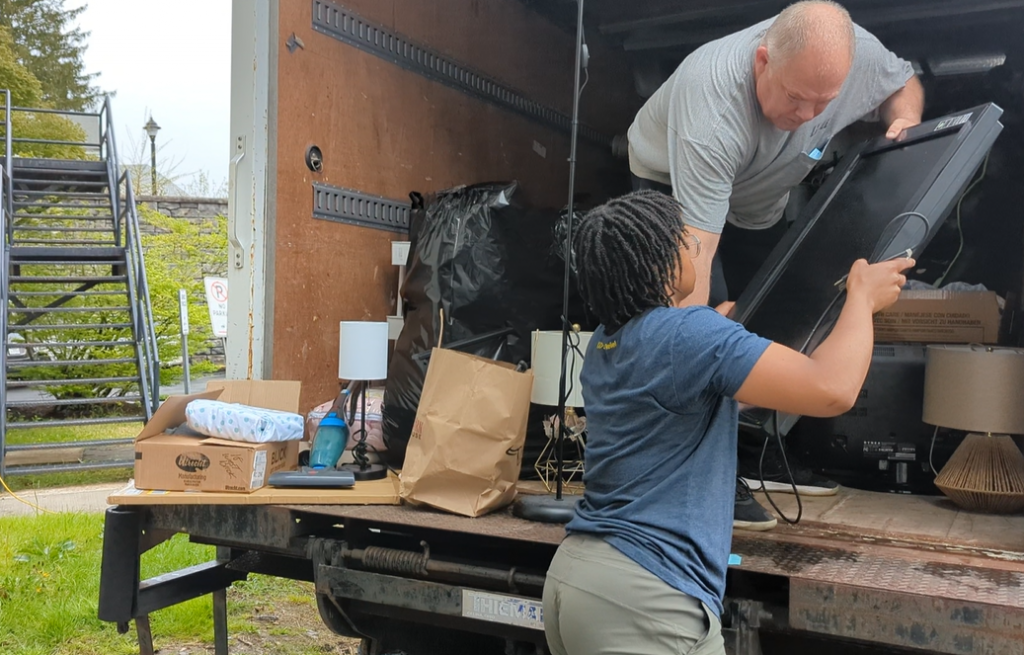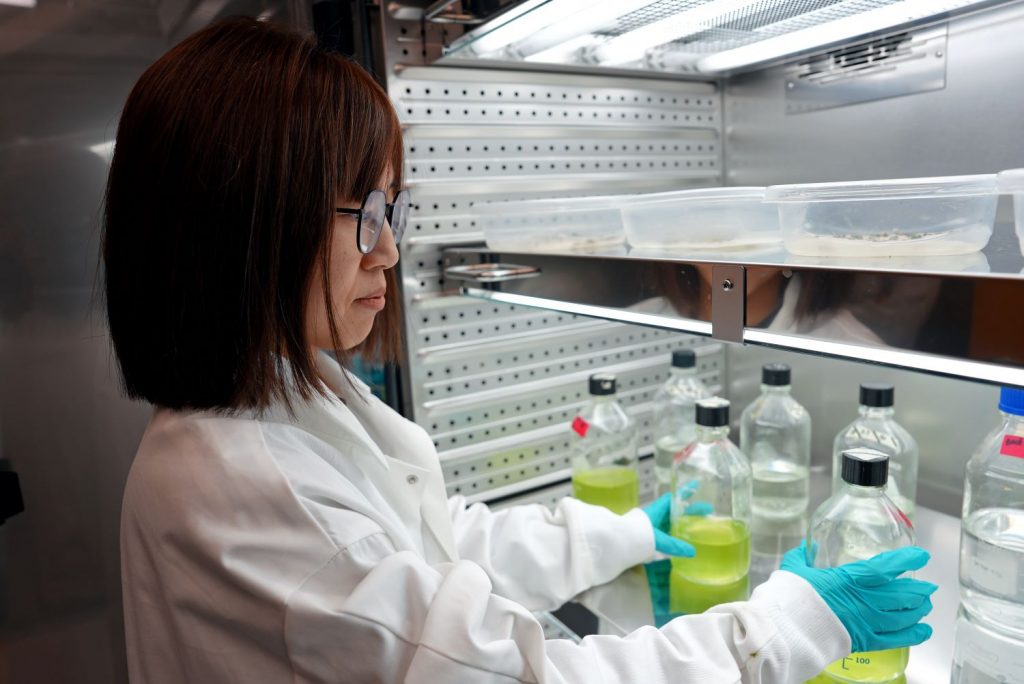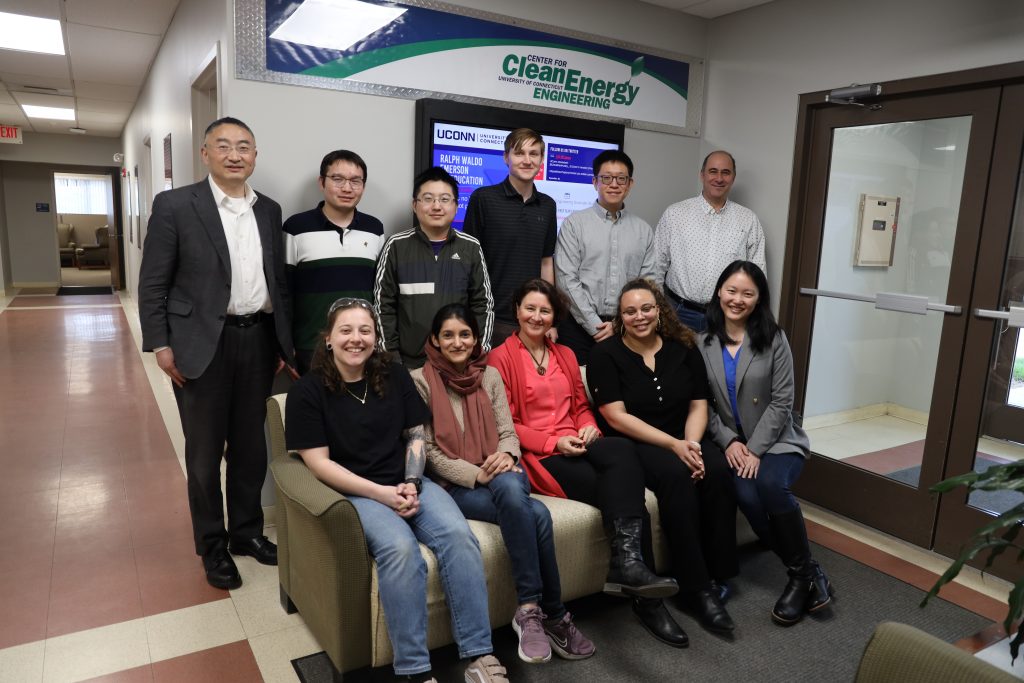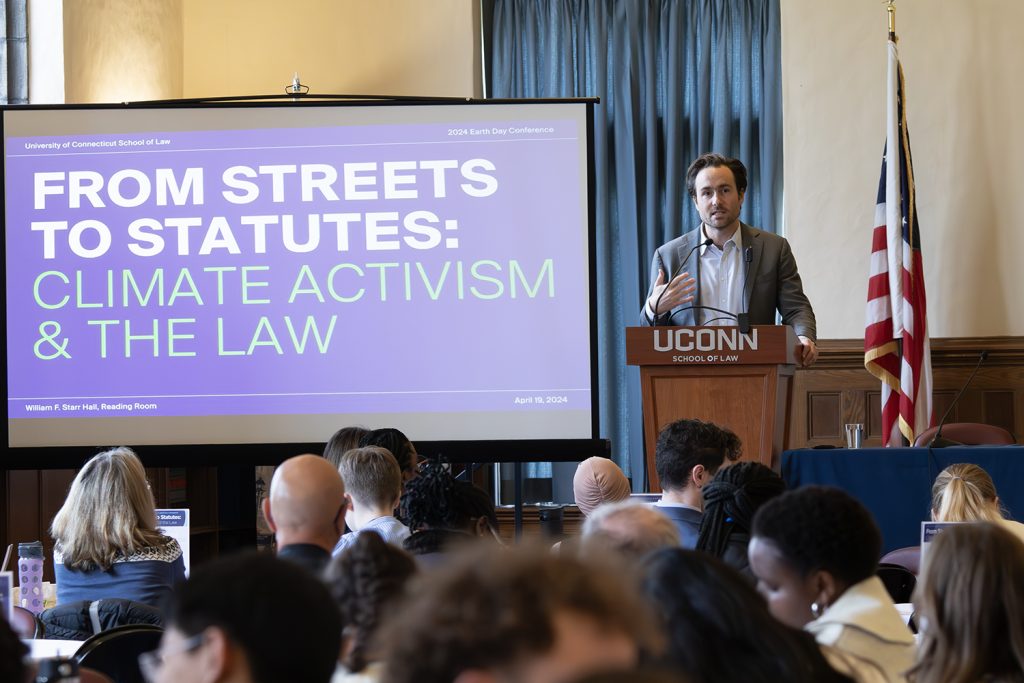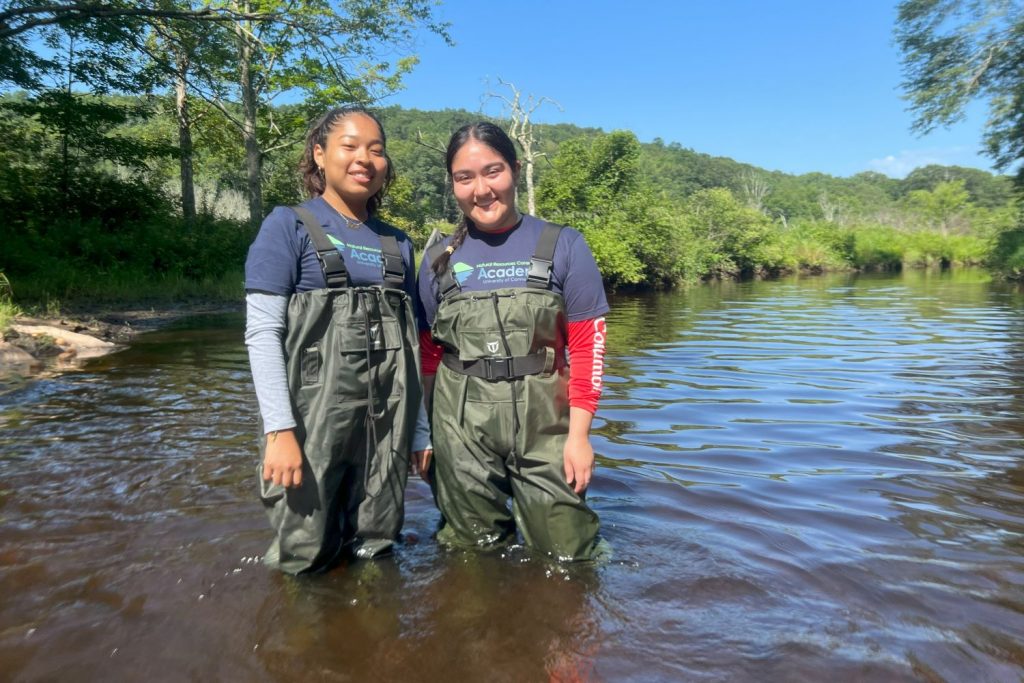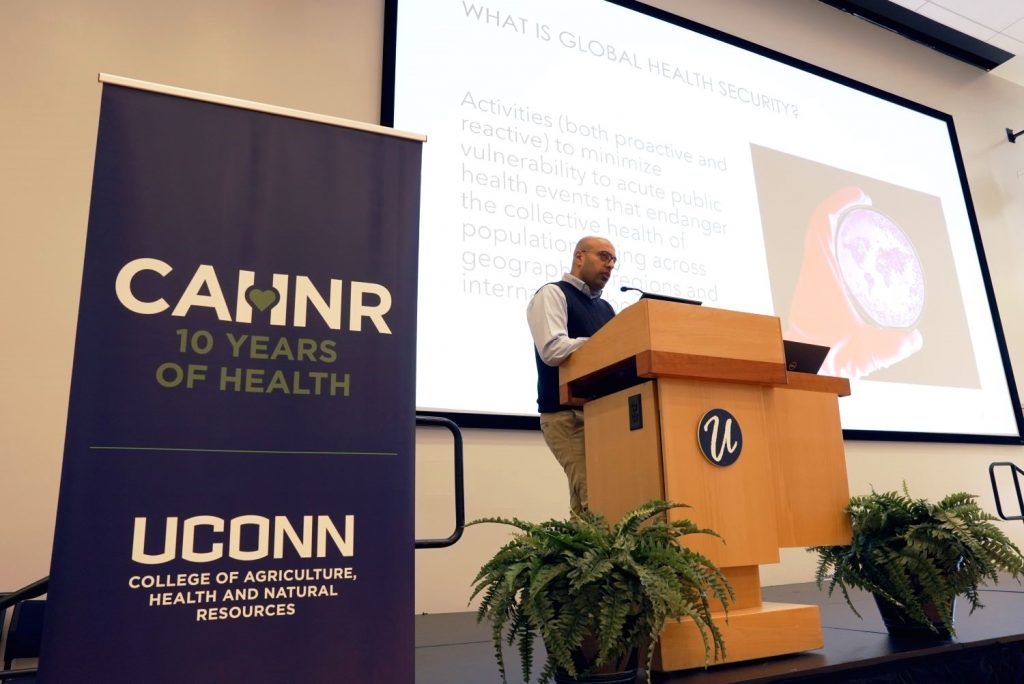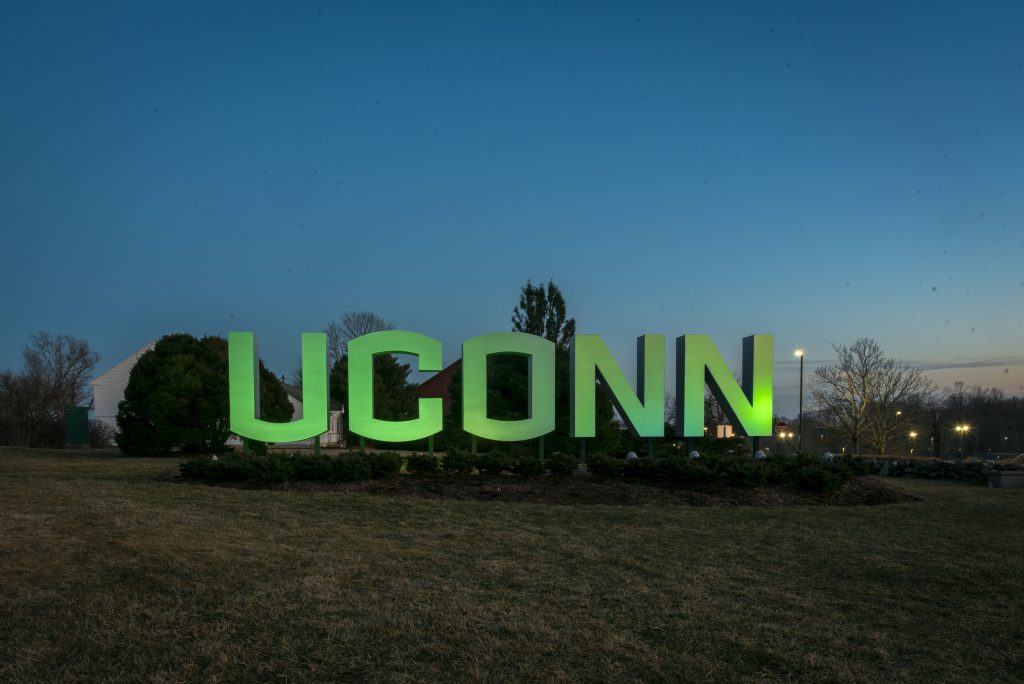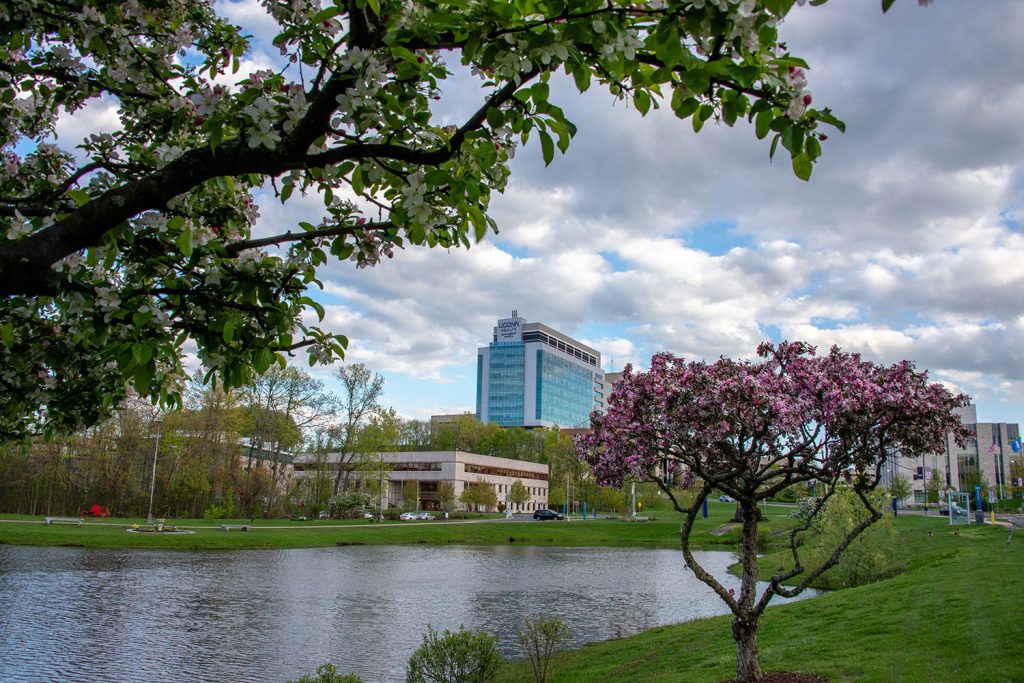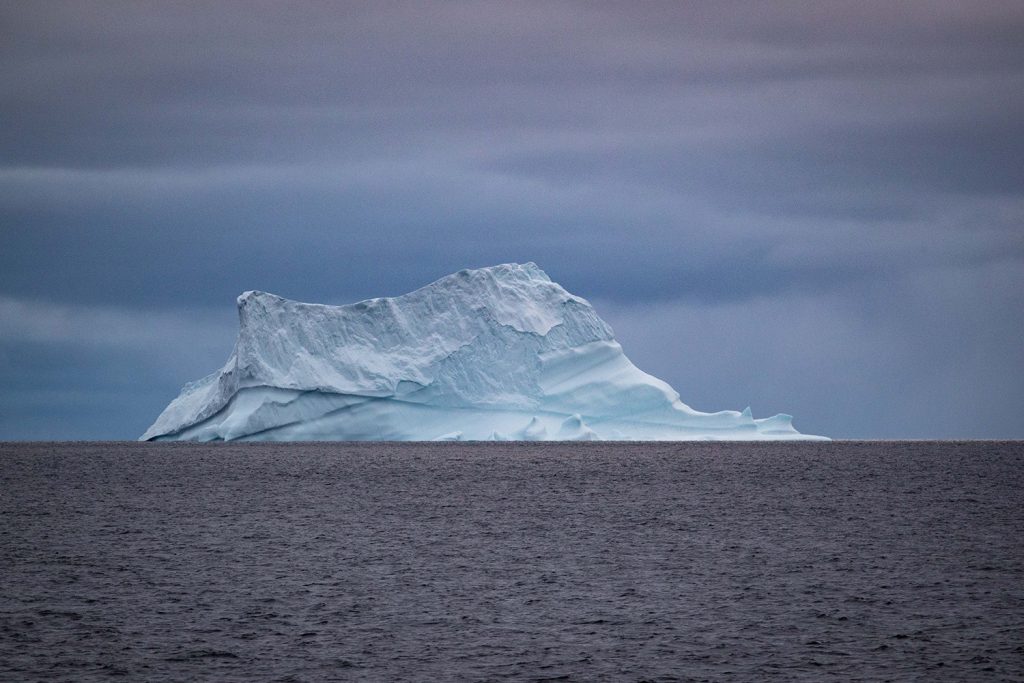Sustainability
Revived Give and Go Program Helps People and Planet
UConn community diverts over 8,000 pounds of donations to local aid organizations during move out.
May 16, 2024 | Betsy Mortensen
Innovative Algae Technologies Help UConn Teams Advance in National Competition
The interdisciplinary teams will develop sustainable, algae-based products for use as a poultry feed supplement and food preservative
May 16, 2024 | Anna Zarra Aldrich, College of Agriculture, Health and Natural Resources
DOE Grants Fund Collaborative Clean Energy Projects
UConn is one of dozens of beneficiaries in funding program to bolster research into hydrogen energy and related projects
April 25, 2024 | Matt Engelhardt
UConn Law 2024 Earth Day Conference Explores Climate Activism and the Law
'We wanted to show our attendees what real organizers are doing right here in our backyards, and to provide them with concrete opportunities to get involved'
April 24, 2024 | Elaina Hancock
CAHNR Senior Supports Community Environmental Projects Through Mentorship
Participating in the Difference Makers Mentor Program allowed senior Alexandra Blas to learn about environmentalism and her love of near-peer mentoring
April 24, 2024 | Anna Zarra Aldrich, College of Agriculture, Health and Natural Resources
CAHNR One Health Initiatives Addressing Human, Animal, and Environmental Issues
From a unique, university-wide conference to new curricula and innovative research, CAHNR is leading efforts in One Health approaches at UConn
April 23, 2024 | Stacey Stearns, College of Agriculture, Health and Natural Resources & UConn Extension
A Dual Mission: Growing Green, UConn Professor Earns Income Licensing Plants that Fight Climate Change
'I’m trying to create plants that can replace a lot of the plants that we seem to be losing due to climate change, drought, heat, and insects and disease'
April 22, 2024 | Joanna Smiley
UConn Health Continues Commitment to Sustainability
Earth Day 2024: Institutional-wide efforts on campus and beyond
April 22, 2024 | Christopher DeFrancesco '95 (CLAS)
Snapshot: Miles of Mud Yield Clues About Our Climate Future
'The program has contributed massively to our understanding of Earth's climate history'
April 11, 2024 | Elaina Hancock
UConn Sustainability Action Plan Taking Wide-Ranging Approach to ‘Green’ Future
A framework for environmental responsibility, social equity, and economic viability
April 10, 2024 | Stephanie Reitz
